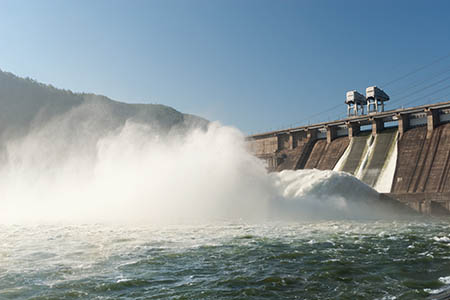Electricity exports grow in Uganda
Source : Daily Monitor
Uganda’s electricity export receipts increased by 13 per cent in the period ending January 2020, according to data from Bank of Uganda. Uganda exports its electricity to Kenya, Tanzania and parts of eastern DR Congo.
According to a Bank of Uganda report released early this month, in the period between January 2019 and January 2020, Uganda exported about 320,372 megawatts of electricity, which earned the country Shs$46m (Shs170b).
This was an improvement in the same period the previous year in which 228,808 megawatts worth $40m (Shs148b) were exported. Ms Pamela Nalwanga Byoruganda, the Uganda Electricity Transmission Company Limited (UETCL) public relations officer, at the weekend told Daily Monitor the increase in export earnings and volumes had been occasioned by “an increase in on the availability of generated power.
Uganda’s current installed electricity capacity stands at 1,252.4 megawatts. However consumption stands at slightly above 650 megawatts during peak hours, which creates a surplus of half of what is generated.
At least by the end of 2020, Uganda’s generation capacity is expected to grow to 1,681 megawatts. As of April 2019, national generation capacity was 1,177 megawatts.
Much of the surplus is exported to Kenya, Tanzania, South Sudan and DR Congo through UETCL. UETCL is in charge of bulk electricity supplies for both the local and export markets.
In October last year, Kenya indicated it had increased its power imports from Uganda due to a reduction in tariffs from Shs787.3 to Shs501 per unit. Kenya’s Energy Cabinet Secretary Charles Keter said at the time the sharp growth in electricity imports from Uganda had been informed by a tariff reduction of about 50 per cent.
The Muhoroni generator which largely supplies the region is Shs1,252.6 per unit compared to Uganda’s which was Shs787.3 per unit before June and is now Shs501 per unit,” he said. Mr Keter also revealed that the tariff is expected to reduce further to Shs357.8 at the end of October, adding that this, being hydro power: “Gives us [Kenya] a lot of stability in the region even as demand continues to rise.”
According to Mr Ramathan Ggoobi, a Makerere University Business School lecturer and an economist, the increase in electricity exports is good, “although some Ugandans would not want to see the country export electricity when they don’t see enough transmitted to them.”
Mr Ggoobi also notes that the export sector is still weak, therefore, if there is anything that brings in some dollars, it must be supported, highlighting that most of the electricity is a result of long-term agreements that Uganda signed with its neighbours. However, he notes, UETCL must strategically use the resources earned to make electricity cheaper.










 Contact us
Contact us Bookmark page
Bookmark page Email us
Email us
